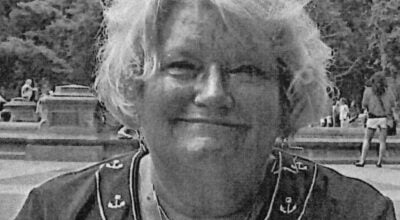Addiction treatment that works
Published 11:17 am Wednesday, July 21, 2021

- NICOLE STINSON FOR INS TREATMENT
|
Getting your Trinity Audio player ready...
|
By Nicole Stinson
Contributing columnist
Your chest hurts and it’s hard to breathe. The emergency room stabilizes you and sends you home with instructions to see a cardiologist immediately. When you call to schedule an appointment, you find out the doctor can’t see you for three weeks and doesn’t accept your insurance.
Does this seem impossible? It’s unlikely for someone who had a heart attack, but it happens all the time to people who have an equally serious disease – substance use disorder, which is the medical diagnosis for addiction.
The keys to effective addiction treatment are similar to heart disease, diabetes, and other life-threatening chronic illnesses. Treatment is available on-demand. It’s comprehensive. And treatment is based on decades of scientific research and proven results.
Treatment Now
Someone who has been at the emergency room for a medical crisis will see a specialist within a day or two to start recovering.
But when people who had an overdose or addiction-related medical crisis try to start recovery, they often find wait times of three weeks or more for inpatient programs, because most have a very limited number of beds.
Someone who’s had a heart attack needs help now. So does someone who is ready to recover from addiction. That’s one reason outpatient treatment centers are opening across Jessamine County.
Many outpatient addiction treatment facilities offer 24/7 call centers that can schedule an appointment the next day. Some also offer immediate medical, counseling, and social services when people walk into a center on weekdays.
In addition to being able to help hundreds of patients a day, treating addiction on an outpatient basis also means people can recover while staying with their families, keeping their jobs, and meeting other responsibilities.
Complete Treatment
Most chronic diseases are caused by a combination of genetic, physical, lifestyle, social, and even emotional factors. Someone with diabetes may have parents or close relatives who are diabetic. Maybe their diet is heavy on pop, chips, and pizza. Or maybe they suffer from depression, which is common in people with diabetes.
That’s why treatment for diabetes is usually comprehensive, including medication, nutrition and lifestyle support, and possibly therapy. Providing only one of these isn’t likely to control the disease long-term.
Addiction is also caused by a number of complex factors that can include genetics, trauma, learned behaviors, economic stress, and more. Many people who struggle with addiction also face depression, anxiety, or other mental illness.
Comprehensive treatment is essential for lasting recovery from addiction. It should include medication to manage physical cravings, regular visits with a primary care doctor to address ongoing medical issues, individual and group therapy to work on psychological causes, and social support to help with housing, transportation, food security, jobs, and the like. Evidence-Based Treatment
Doctors don’t guess how to treat heart disease, high blood pressure, and other serious diseases. Treatment for these and most illness is based years of research that proves what works and how it should be applied to different individuals and their specific cases.
There’s a similar body of research for addiction, and treatment based on that evidence is the foundation of successful recovery. These practices are recognized as the gold standard for addiction treatment by the American Society of Addiction Medicine, the National Institute on Drug Abuse, and others.
What have we learned? Research proves that addiction is a chronic disease that can be treated. Medication-assisted treatment helps people recover. Addressing the full range of physical, social, and emotional causes of addiction is important to help people achieve long-term recovery.
It may sound obvious, but making sure people have safe, stable housing, reliable transportation, and a sober support network is also crucial in equipping them for recovery.
At BrightView, we’ve also learned how important it is to treat people who have addiction with respect and dignity. They deserve it just as much as people who have heart disease, high blood pressure, or any chronic disease.
Nicole Stinson is the Outreach Manager at BrightView’s Nicholasville Addiction Treatment Center at 506 North Main Street. For more information or to schedule an appointment, see www.brightviewhealth.com or call (833) 510-4357 anytime.





